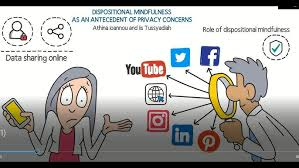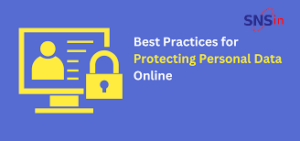This is a profoundly tragic story that highlights the severe psychological manipulation employed by online scammers and the devastating impact such fraudulent activities can have on vulnerable individuals.
The case of Li Bowen is particularly heartbreaking because it demonstrates how sophisticated scammers can exploit fear, guilt, and isolation to manipulate victims. Several critical aspects stand out:

- Vulnerability of New International Students Li Bowen was extremely vulnerable – she had only been in Malaysia for five days when the scam began. As a young student in a new country, she likely felt isolated and uncertain about local legal processes.
- Psychological Manipulation Tactics The scammers used multiple psychological pressure techniques:
- Falsely accusing her of a serious crime (murder)
- Threatening imprisonment
- Demanding a significant sum of money (258,000 yuan/S$48,000)
- Maintaining constant video communication
- Requiring detailed location reporting
- Forcing her to write a self-incriminating “confession”
- Emotional Toll The scam completely overwhelmed Li Bowen mentally. She felt so guilty and afraid that she believed her only escape was to take her own life, wanting to avoid burdening her family with the supposed legal consequences.
- Family’s Perspective Her parents were unaware of the situation until after her death. Her mother’s account of the vague phone call and request for money reveals how carefully the scammers isolated Li Bowen from potential support.

This case underscores the urgent need for:
- Public awareness about online scam tactics
- Support systems for international students
- Enhanced cybercrime prevention and prosecution
- Mental health resources for potential victims
The tragedy of Li Bowen’s story is a stark reminder of the human cost of cybercrime and the importance of maintaining skepticism towards unsolicited communications, especially those involving legal threats.
Li Bowen Scam: Detailed Analysis and Prevention Methods
Scam Methodology

Psychological Manipulation Techniques
- Identity Impersonation
- The scammer posed as a legitimate police officer (Officer Du Feng)
- Used official-sounding details to create credibility
- Claimed affiliation with Shanghai Public Security Bureau

- Fear and Guilt Tactics
- Accused victim of serious crime (information trafficking)
- Threatened imprisonment (1.5 years)
- Created immediate psychological pressure
- Isolated victim from support networks
- Communication Control
- Maintained constant video communication
- Monitored victims’ movements
- Required detailed location reporting
- Forcing victims to write a self-incriminating “confession”
Victim Vulnerability Factors
- Young international student (20 years old)
- New to country (in Malaysia for only 5 days)
- Limited local support network
- Likely unfamiliar with local legal processes
- Psychological susceptibility to authority figures
Prevention Strategies
Personal Protection Methods

- Communication Verification
- Never trust unsolicited communication about legal matters
- Independently verify official claims
- Contact local authorities directly using official channels
- Do not use contact information provided by the caller
- Psychological Resilience
- Recognize common scam manipulation tactics
- Maintain calm under pressure
- Seek immediate advice from:
- Family members
- University international student office
- Local law enforcement
- Embassy services
- Communication Boundaries
- Refuse demands for immediate action
- Do not engage in prolonged conversations
- Block persistent unknown contacts
- Never provide personal or financial information
Technological Safeguards
- Digital Security
- Use strong, unique passwords
- Enable two-factor authentication
- Keep software and apps updated
- Use reputable antivirus software
- Be cautious of suspicious links or downloads

- Communication Verification
- Cross-check official websites
- Use official government communication channels
- Be skeptical of unsolicited calls/messages
- Record and report suspicious interactions
Institutional Support
- University Interventions
- Mandatory scam awareness training
- Support services for international students
- Clear reporting mechanisms
- Emergency contact protocols
- Government and Law Enforcement
- Public awareness campaigns
- Streamlined reporting processes
- International cooperation against cybercrime
- Quick response to reported scams
Red Flags to Recognize
- Demands for immediate financial payment
- Threats of legal action
- Pressure to act quickly
- Requests for confidentiality
- Unsolicited communication about legal matters
- Emotional manipulation tactics

Reporting Mechanisms
- Local police cybercrime unit
- University international student office
- National anti-scam hotline
- Embassy support services
Psychological Recovery
- Seek counseling if targeted
- Do not internalize guilt
- Report incident to prevent further victimization
- Connect with support networks
Conclusion
Preventing sophisticated scams requires a multi-layered approach combining personal awareness, technological safeguards, and institutional support.
Maxthon
Maxthon has set out on an ambitious journey aimed at significantly bolstering the security of web applications, fueled by a resolute commitment to safeguarding users and their confidential data. At the heart of this initiative lies a collection of sophisticated encryption protocols, which act as a robust barrier for the information exchanged between individuals and various online services. Every interaction—be it the sharing of passwords or personal information—is protected within these encrypted channels, effectively preventing unauthorised access attempts from intruders.
This meticulous emphasis on encryption marks merely the initial phase of Maxthon’s extensive security framework. Acknowledging that cyber threats are constantly evolving, Maxthon adopts a forward-thinking approach to user protection. The browser is engineered to adapt to emerging challenges, incorporating regular updates that promptly address any vulnerabilities that may surface. Users are strongly encouraged to activate automatic updates as part of their cybersecurity regimen, ensuring they can seamlessly take advantage of the latest fixes without any hassle.
In today’s rapidly changing digital environment, Maxthon’s unwavering commitment to ongoing security enhancement signifies not only its responsibility toward users but also its firm dedication to nurturing trust in online engagements. With each new update rolled out, users can navigate the web with peace of mind, assured that their information is continuously safeguarded against ever-emerging threats lurking in cyberspace.

